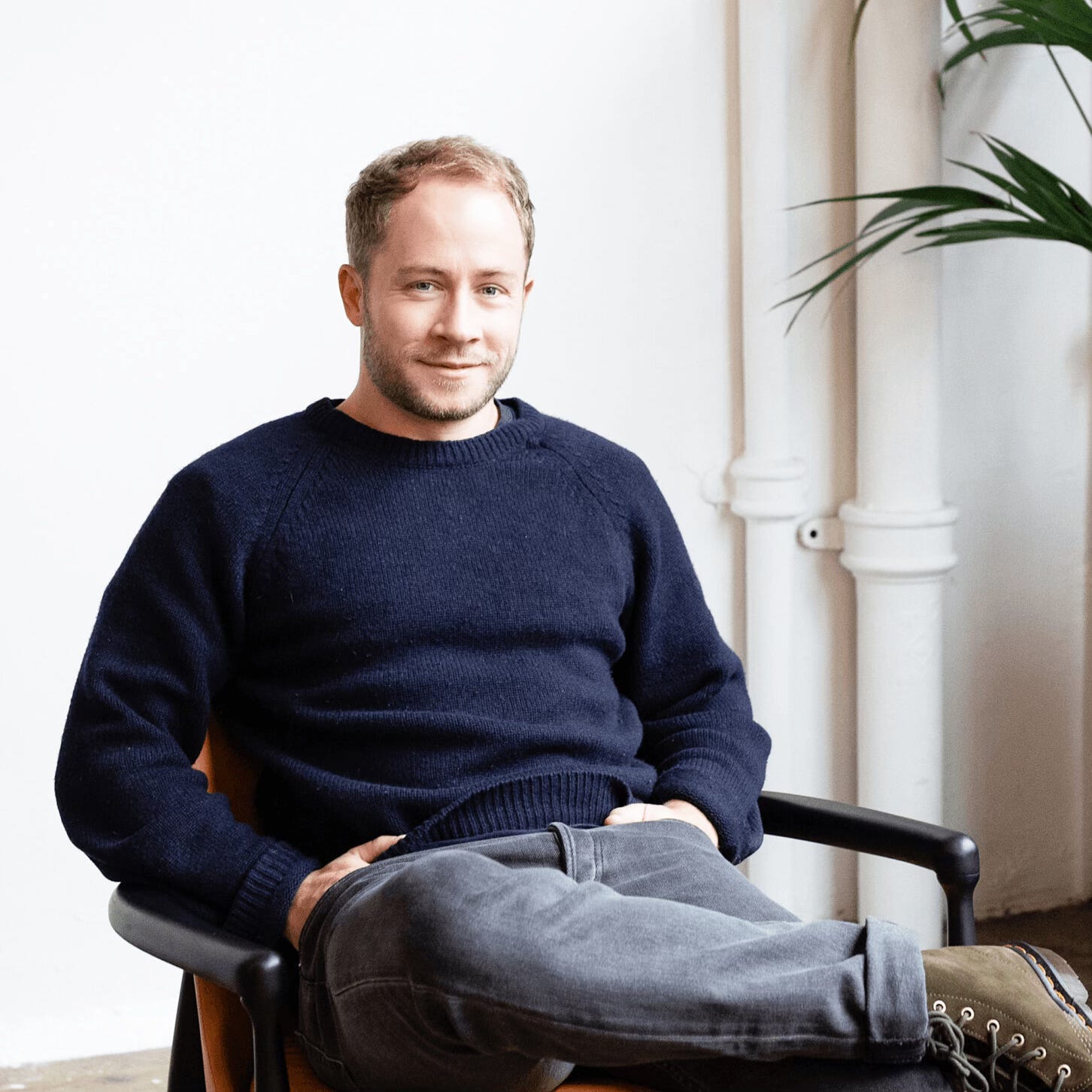
✨ This is a bonus episode of Millennial Masters with a condensed version of Barney Hussey-Yeo’s evidence for the Scaling up - AI and creative tech inquiry from the UK House of Lords. 📺 Watch it on Substack.
The UK’s tech and AI scene has the brains and the buzz, but it’s hitting a wall. Despite world-class universities and a vibrant startup culture, major roadblocks are holding us back from playing on the global stage.
During a no-nonsense panel with the House of Lords Communications and Digital Committee, Barney Hussey-Yeo, Founder and CEO of Cleo, didn’t hold back — he shed light on the critical barriers hindering growth and offered a potential roadmap for rebirth.
Founded in 2016 in the UK, Cleo is an AI assistant helping people manage their finances more effectively. With $150 million in Annual Recurring Revenue (ARR), Cleo achieved profitability while doubling its growth year over year. It raised $200 million in capital, and operates exclusively in the USA since 2020, with plans to raise an extra $200 million in 2025 to expand further.
From Barney’s candid observations for the Scaling up - AI and creative tech inquiry, I extracted five reasons why the UK’s tech and AI sector is falling behind — and five actionable ways to turn things around.
Millennial Masters is brought to you by Jolt ⚡️ The UK’s top web hosting service
5 reasons why the UK’s AI sector is stagnating
1️⃣ Missed opportunities in foundational models and infrastructure
Barney thinks that the UK has fallen behind in developing foundational AI models due to a lack of tech champions and significant capital investment.
Barney Hussey-Yeo: “I think we’ve missed the boat on foundational models. So, you know, in the UK, we have no tech champions. We have no tech company list on the LSE, which is bigger than 10 billion in market cap. The US has five trillion dollar companies, and video is bigger than the whole LSE.”
2️⃣ Overly restrictive regulatory environment
Rigid and risk-averse regulations in the UK are driving AI startups to relocate abroad, hindering domestic innovation and growth.
Barney Hussey-Yeo: “If we still have these regulators with all of this incredible power that they have today, and if they don’t have a growth mindset, if they’re not supporting innovative companies, the companies are going to move to Europe or they’re going to move to the US instead of building their company as here in the UK today.”
3️⃣ Inadequate growth capital
A severe shortage of growth-stage funding in the UK forces AI companies to seek capital in the United States, limiting their ability to scale domestically.
Barney Hussey-Yeo: “The growth stage funds in the United Kingdom are tiny, tiny, tiny. If I want to raise 200 million plus, which will be my next round, there’s no fund in the UK that can actually support that level of capital.”
4️⃣ High energy costs and infrastructure gaps
Exorbitant electricity costs and insufficient investment in nuclear energy prevent the UK from supporting the high compute demands of AI operations.
Barney Hussey-Yeo: “We have the highest electricity costs across all Western geographies. We would have to build nuclear, renewables wouldn’t do it, so that would have to happen.”
5️⃣ Talent retention and immigration hurdles
Post-Brexit immigration restrictions have made it harder to attract and retain international talent, undermining the UK’s AI talent pool.
Barney Hussey-Yeo: “If we can’t buck that trend and get people coming back to London, get them coming back to want to work here, Paris is going to, France is going to be the dominant AI company of Europe and we’re going to play second fiddle which I think we are doing a little bit today.”
5 ways to fix the UK’s AI stagnation
1️⃣ Reform regulatory frameworks to entice growth
Adopting a more supportive and flexible regulatory environment can retain tech and AI businesses within the UK and prevent them from seeking more favourable conditions abroad.
Barney Hussey-Yeo: “We need regulators that have a growth mindset. We need regulators that have checks and balances. And we need to cooperate with the United States and Europe to have global regulation so you’re not having to understand the regulation every single geo as you scale your company.”
2️⃣ Unlock growth capital through institutional investment
Encouraging pension funds and institutional investors to participate in venture capital can bridge the growth capital gap, enabling AI companies to scale effectively.
Barney Hussey-Yeo: “The pension funds have no incentive to put money into venture. They want to make as much fees, take as little risk as possible. So the pension funds are sitting there having a great time making money, whereas they’re screwing the [investors].”
3️⃣ Launch a national AI mission
Implementing a large-scale, government-led initiative akin to the Apollo or Manhattan projects can propel the UK’s AI sector forward, fostering innovation and infrastructure development.
Barney Hussey-Yeo: “You need an Apollo-style mission; you need a Manhattan Project style to be able to do this… you would need to hire the best people, you would build a venture-backed company with the right CEO, you would get at it today.”
4️⃣ Strengthen the London Stock Exchange (LSE)
A revitalised LSE with deeper capital pools and founder-friendly policies could become a magnet for tech companies. By encouraging listings at home, the UK can prevent its most promising firms from going public abroad.
Barney Hussey-Yeo: “We must get more capital into the LSE. We must get more capital into any tech company that lists there. It’s a bit of a chicken and egg, though. It’s not very many tech companies to even put the capital in today.”
5️⃣ Revamp tax regimes to retain founders
Reforming the UK’s tax policies to make it more attractive for founders to stay and list their companies domestically can retain top talent and prevent capital flight.
Barney Hussey-Yeo: “We have the better tax regime than the United States. We have 24% capital gains now versus 38% in the US. So I spent four months of the year in the US not to hit capital gains in the US… We have to build a competitive system level environment for founders to want to be here. Otherwise, you’re going to go to Dubai, otherwise, you’re going to go to the US.”
📺 The Scaling up - AI and creative tech inquiry from the UK House of Lords continues through to December 6, 2024. You can watch back all three sessions here.
This inquiry is examining the challenges facing SMEs seeking to scale up in the UK, focusing on firms working in AI, and creative technology. They have been taking evidence from UK creative tech firms, trade bodies and venture capital firms.
A final report will then be compiled with actions needed from the government and industry over the next 5 years to maximise the economic potential of these sectors and secure competitive advantage.
👉🏻 Get the Millennial Masters Podcast on Spotify, Apple & YouTube











